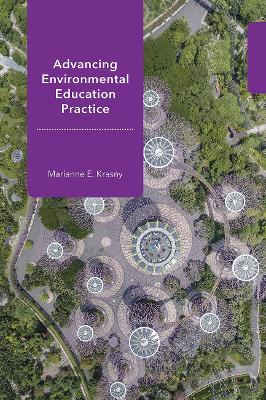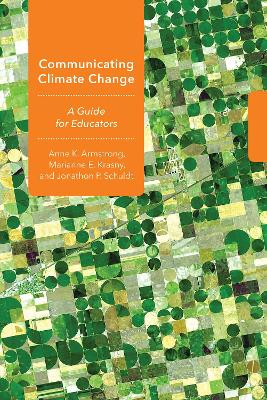Cornell Series in Environmental Education
2 total works
In this important intervention, change-agent Marianne E. Krasny challenges the knowledge-attitudes-behavior pathway that underpins much of environmental education practice; i.e., the assumption that environmental knowledge and attitudes lead to environmental behaviors. Krasny shows that certain types of knowledge are more likely than others to influence behaviors, and that generally it is more effective to work with existing attitudes than to try to change them. The chapters expand the purview of potential outcomes of environmental education beyond knowledge and attitudes to include nature connectedness, sense of place, efficacy, identity, norms, social capital, youth assets, and individual wellbeing.
Advancing Environmental Education Practice also shows how, by constructing theories of change for their environmental education programs, environmental educators can target specific intermediate outcomes likely to lead to environmental behaviors and collective action, and plan activities to achieve those intermediate outcomes. In some cases, directly engaging program participants in the desired behavior or collective action can lead to changes in efficacy, sense of place, and other intermediate outcomes, which in turn foster future environmental actions. Finally, Advancing Environmental Education Practice shares twenty-four surveys that assess changes in environmental behaviors and intermediate outcomes, and provides guidelines for qualitative evaluations.
Thanks to generous funding from the Cornell Department of Natural Resources, the ebook editions of this book are available as Open Access volumes from Cornell Open (cornellopen.org) and other Open Access repositories.
Communicating Climate Change
by Anne K. Armstrong, Marianne E. Krasny, and Jonathon P. Schuldt
Environmental educators face a formidable challenge when they approach climate change due to the complexity of the science and of the political and cultural contexts in which people live. There is a clear consensus among climate scientists that climate change is already occurring as a result of human activities, but high levels of climate change awareness and growing levels of concern have not translated into meaningful action. Communicating Climate Change provides environmental educators with an understanding of how their audiences engage with climate change information as well as with concrete, empirically tested communication tools they can use to enhance their climate change program.
Starting with the basics of climate science and climate change public opinion, Armstrong, Krasny, and Schuldt synthesize research from environmental psychology and climate change communication, weaving in examples of environmental education applications throughout this practical book. Each chapter covers a separate topic, from how environmental psychology explains the complex ways in which people interact with climate change information to communication strategies with a focus on framing, metaphors, and messengers. This broad set of topics will aid educators in formulating program language for their classrooms at all levels. Communicating Climate Change uses fictional vignettes of climate change education programs and true stories from climate change educators working in the field to illustrate the possibilities of applying research to practice. Armstrong et al, ably demonstrate that environmental education is an important player in fostering positive climate change dialogue and subsequent climate change action.
Thanks to generous funding from Cornell University, the ebook editions of this book are available as Open Access from Cornell Open (cornellopen.org) and other Open Access repositories.

